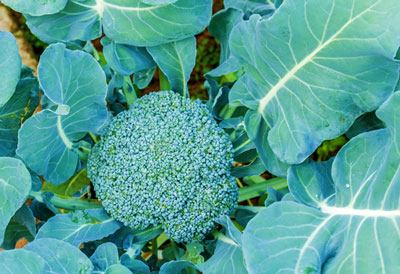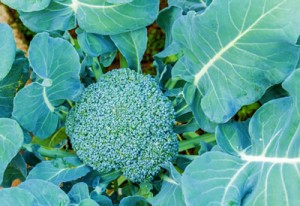University of Lincoln develops new 3D technology which tells farmers when crops are ripe for harvesting
- Like
- Digg
- Del
- Tumblr
- VKontakte
- Buffer
- Love This
- Odnoklassniki
- Meneame
- Blogger
- Amazon
- Yahoo Mail
- Gmail
- AOL
- Newsvine
- HackerNews
- Evernote
- MySpace
- Mail.ru
- Viadeo
- Line
- Comments
- Yummly
- SMS
- Viber
- Telegram
- Subscribe
- Skype
- Facebook Messenger
- Kakao
- LiveJournal
- Yammer
- Edgar
- Fintel
- Mix
- Instapaper
- Copy Link
Posted: 10 June 2015 | Victoria White | No comments yet
A project involving 3D camera technology being developed at the University of Lincoln could result in a fully automatic robotic broccoli harvesting system…


A project involving 3D camera technology currently being developed at the University of Lincoln, UK, could result in a fully automatic robotic harvesting system for broccoli.


The University of Lincoln is one of more than 70 UK businesses and universities to share funding through the £70 million Agri-Tech Catalyst, which aims to improve the development of agricultural technology in the UK.
The project, which is jointly funded by BBSRC and Innovate UK, will test whether 3D camera technology can be used to identify and select when broccoli is ready for harvesting. This will be a key step towards the development of a fully automatic robotic harvesting system for broccoli, which will significantly reduce production costs. It has been praised as ‘world leading’ by UK Farming Minister George Eustice.
Project lead Professor Tom Duckett, group co-ordinator of the Agri-Food Technology Research Group at the University of Lincoln, said, “Broccoli is one of the world’s largest vegetable crops and is almost entirely manually harvested, which is costly. This technology is seen as being an important move towards developing fully automatic robot harvesting systems, which could then be used for a variety of different crops.
“In all our agri-related research work, our mission is to develop new technological solutions for the business of producing food through agriculture. The long-term impact of our research includes safer food, less waste, more efficient food production and better use of natural resources, as well as promoting human health and happiness.”
Head of Agriculture and Food at Innovate UK Ian Meikle said, “The Agri-Tech Strategy aims to make the UK a world leader in agricultural technology, innovation and sustainability. The funding decisions are expert-led and evidence-based. They support great ideas that address challenges of the future in food and farming. With business, research and government working together, these investments can unlock potential and deliver major benefits for society and the economy.”
Univeristy of Lincoln is also involved in a project for the early detection and biocontrol of diseases in mushrooms and potatoes
Another project benefiting from the University of Lincoln’s expertise in this area is the early detection and biocontrol of prevalent diseases of mushrooms and potatoes.
Also funded by Innovate UK, this project addresses challenges associated with the identification, prevention and management of disease by developing diagnostic tools for farm use and alternatives to chemical pesticides. This will enable the primary producers in these industries to rapidly diagnose the existence of disease and facilitate earlier decision making.
It is anticipated that this project will develop a long-needed alternative to the use of pesticides by the mushroom and potato industries, thereby ensuring their future sustainability.
Principal Investigator Dr Bukola Daramola, from the University’s NCFM, said,“Food loss from farm to fork, due to disease and spoilage, causes considerable environmental and economic effects. The outputs of this project have the potential to significantly address the challenges presented to the mushroom and potato sectors by pathogenic bacteria and fungi, their detection and resistance to treatment. At the heart of the project is a drive to develop robust solutions for bio-monitoring and bio-control, leading to scientific advancement and the marketing of products which will ultimately have significant economic and societal benefit for the UK and beyond.”




